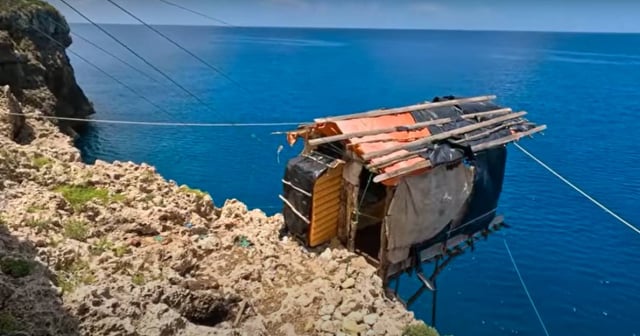The Business Group of Fishing in Cuba stated that it faces multiple difficulties that prevent them from providing sufficient fish to the population.
The government program Mesa Redonda had as guests engineer Armando Posada Lóriga, president of the mentioned organization, and other executives from the Fishing sector. They pointed out that among the difficulties the sector faces in providing fish to Cubans are:
- Resource deficitThe group has a deficit of external liquidity, which prevents them from acquiring raw materials and equipment necessary for fishing and processing fishery products.
- Energy problemsThe lack of fuel and electricity affects fishing operations and the functioning of industries, limiting the capture and production of fish.
- Lack of vessels and equipmentThe deterioration and lack of adequate vessels, along with the obsolescence of industrial equipment, limit the capacity for catch and production.
- Priority to other sectorsAlthough 71% of industrial production is intended for the population, 15% is dedicated to tourism and a significant portion is for export to generate external income, which reduces the amount of fish available for domestic consumption.
- Problems of poaching and illegal activitiesIllegal fishing negatively affects the regulated production and organized distribution of fishery products.
The fishing sector in Cuba, like the housing construction sector, sugar production, agriculture, and others, also fails to meet its production plans.
At the end of August, the Business Group of Fishing only met 53% of the capture plan and 67% of the industrial production plan, both below expectations. Although the decline in aquaculture and shrimp farming was halted, the plans were not met in general.
Paradoxically, they do meet the export plans, especially for lobsters and shrimp. So far this year, they are above 95% and revenues have increased. Both results are better than last year.
It is evident that the problems of fishing are in the area that affects the people. It is there that the combination of resource scarcity, energy difficulties, and inadequate equipment occurs.
The few resources available in the sector are allocated to prioritize exports in order to generate external income, but those profits do not reinvest in increasing productivity, and therefore, the people have only seen empty fish markets for decades.
In 2023, the government said that "Cuba is a country surrounded by the sea, but the waters do not have the levels of fish needed to meet the demand of the population, to satisfy this growing demand."
The Minister of Food Industry at that time, Manuel Sobrino Martínez, also attributed the lack of fish in the country to the fact that more than 60 boats are idle.
This minister was dismissed in early 2024, but he is still remembered for his explanation of the reasons why many Cubans have never tasted a lobster.
"If we indulge in eating lobster and shrimp, there will be a shortage of milk for the children," commented Sobrino on the Mesa Redonda program in 2020. Since 1960, milk has been one of the scarcest and most expensive products in Cuba, even though lobsters and shrimp are still not seen in the country's fish markets.
What do you think?
COMMENTFiled under:
